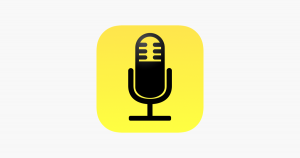I must say right away that I am not a supporter of learning foreign languages and french to english with the help of vocabulary cards or vocabulary notebooks, since I do not consider them effective methods for mastering new vocabulary. You may remember a new expression by reading it over and over again in a vocabulary book, but you will definitely remember it much faster if you encounter it in several different contexts, for example, in a newspaper headline, in the lyrics of a song, and in the speech of a movie character. Therefore, reading, listening to podcasts and watching video clips (of course, all these materials should be selected according to the level of language proficiency) seem to me to be more rational ways to spend study time than working with flashcards.
But I am not an opponent of cards and dictionaries either. Many students, both adults and children, love to create them. I know that many people like to look through the dictionary before going to bed, or lay out cards on the table during morning coffee. Some people keep a stack of cards in their coat pocket and go through them while commuting to and from work. Some people prefer more high-tech solutions and use various spaced repetition programs such as Anki. For many, the creation of cards and dictionaries is a familiar activity, without which it is difficult for them to imagine learning a language. In some schools, keeping vocabulary notebooks is a mandatory requirement, somewhere they are even regularly handed over for verification!
I repeat, I do not consider this necessary and rational, but I see one undoubtedly useful point here, namely memorization “through the hand.” It often happens that words and expressions are remembered simply because you write them down. There is even a method based on this for mastering new vocabulary, which I call “hand and voice” for myself, and which I have already described here. A sheet of paper must be divided into two columns, for a word and a translation, and then write 25 words in 20 minutes, saying aloud what you are currently writing down. There is no need to purposefully memorize the words, just enjoy the process – a calm atmosphere, a beautiful notebook, your favorite pen. Words will be acquired simply through pronunciation and hand movements. It is necessary to periodically return to the list of words, reread it, and again write down those words that could not be remembered.
There are also many other ways to keep vocabulary cards and vocabulary books. I do not think that strict rules are appropriate here – the main thing is that it is convenient and understandable. But there are several principles, general recommendations, which, in my opinion, should be followed.



